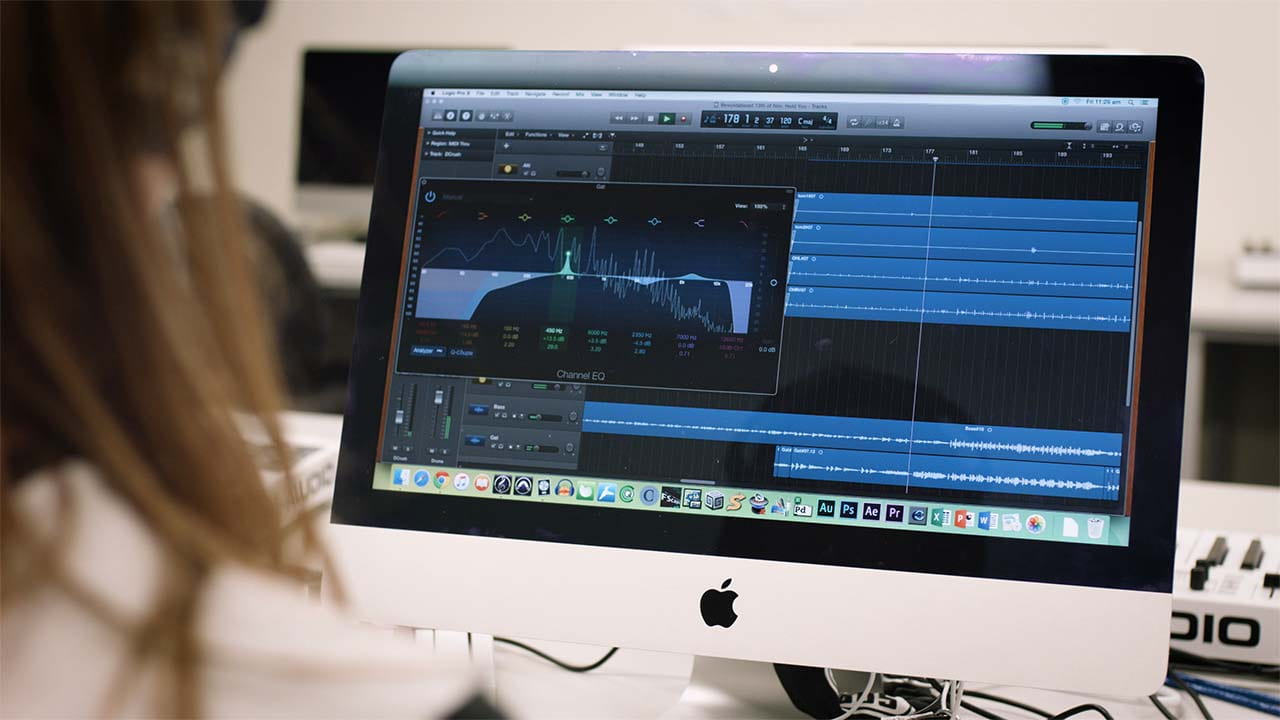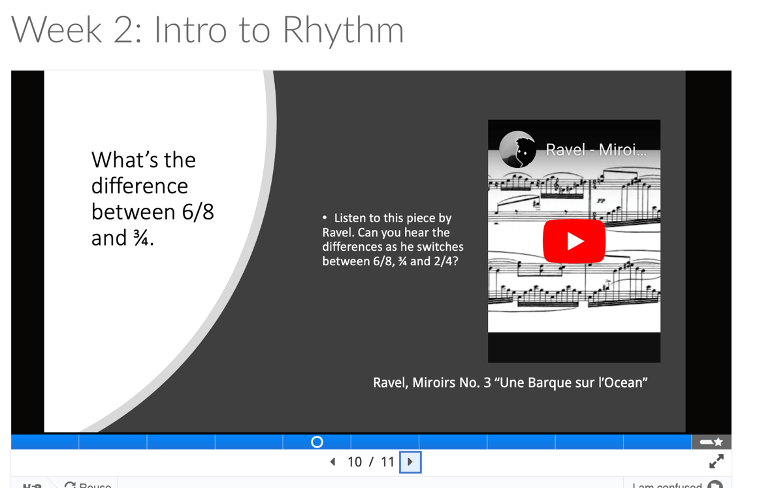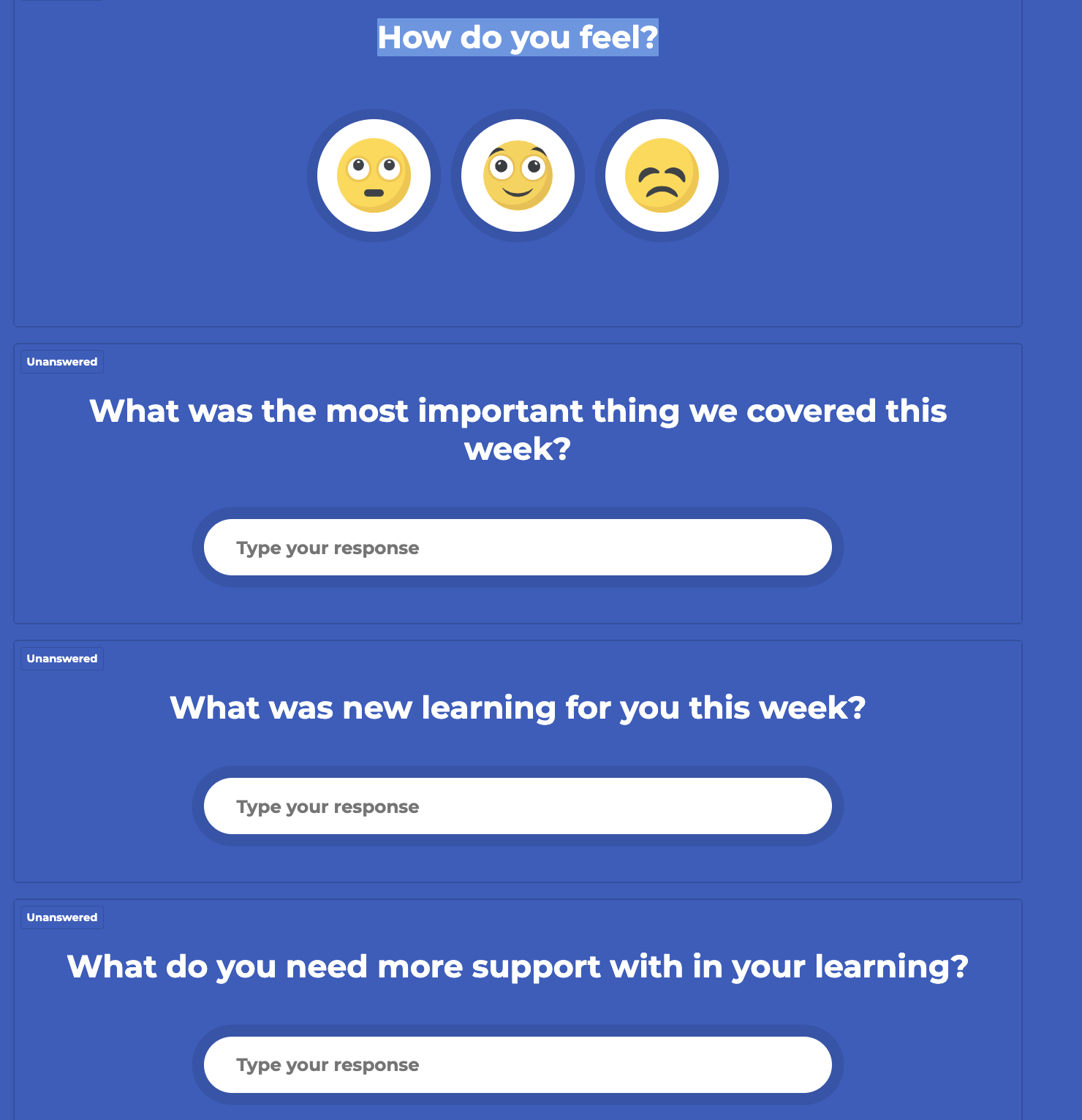Developing students’ judgement of their own work through self-assessment and feedback
The MUS103 and 130 courses were redesigned to be fully online, self-paced courses with elements of ‘flipped learning,’ including multiple opportunities for students to practice/experiment and gain feedback on their performance. This was achieved through many self-directed activities such as playing virtual keyboards, listening to different versions of a piece of music and reflecting on how they are different, plus self-test activities embedded in short video tutorials, and using specialised music software.

Each week students are provided with:
Lessons (lectures) with embedded interactions: opportunities to complete self-directed tasks, eg group discussions, H5P interactions, Quizzes/surveys, inquiry and reflection statements before attending a virtual tutorial.
Live Sessions: weekly online tutorial which provides a chance to ask questions, get help, receive feedback on activities and meet virtually with the rest of their cohort.
Weekly Discussions. These help with preparation for the weekly content.
The weekly live online session includes a small practical assessment (3% in MUS 103 and 4% in MUS 130 respectively). These tasks are practical applications of learning that week.
The Live Sessions were limited to 20 students or less. This allowed the lecturer to interact 1:1 with each student and to develop relationships with them as the semester progressed (even in a class of 106). A number of the breakout groups within the live sessions (2-4 students) also met (online) outside of class times to complete weekly assignments.
Summary and reflection
At the end of each week students are encouraged to reflect on their knowledge and check that they have a clear understanding of all of the taught content.
To further strengthen the students’ awareness and sense of responsibility for their own learning, each week they are asked to respond to questions such as what was the most important thing they learned, what they need help with and how they feel. These self-assessments can be addressed in the live sessions.
Lecturers have become less of the core focus of the course and become facilitators of learning, carefully developing and curating rich self-directed learning experiences. Students’ engagement with these activities helps to develop autonomy and self-judgement. Repeating the exercises gives students control over their own pace and degree of progression.
Student engagement is directly correlated between very high achievement and high levels of engagement in course materials. Lecturers observed that A+ students tend to view materials over 1000 times per-module to prepare well for assessment. (At the end of week 5, the highest achieving students had over 5500 page views).
Materials are available for review and further exploration for the duration of the courses, which is greatly valued by students.


